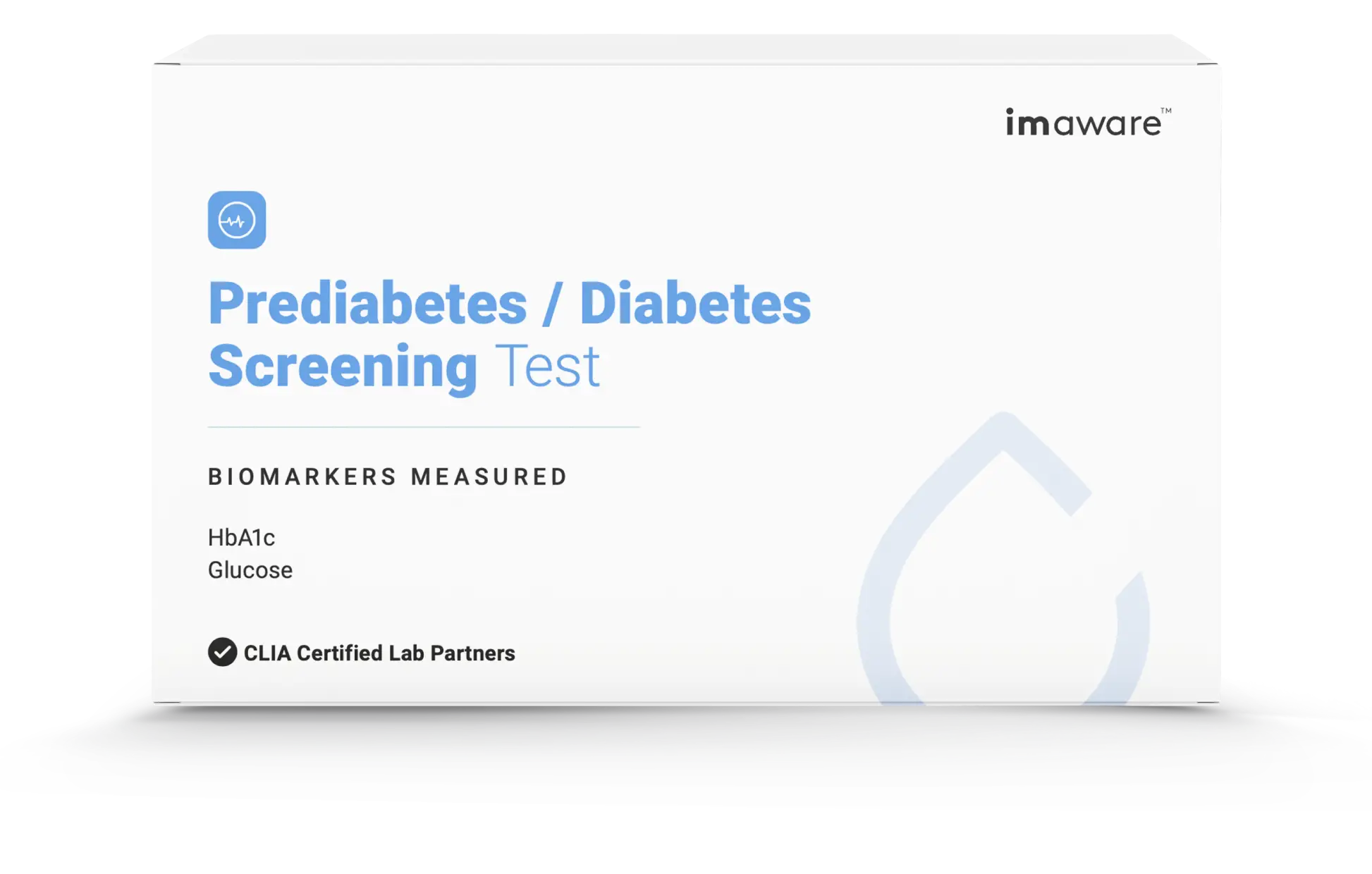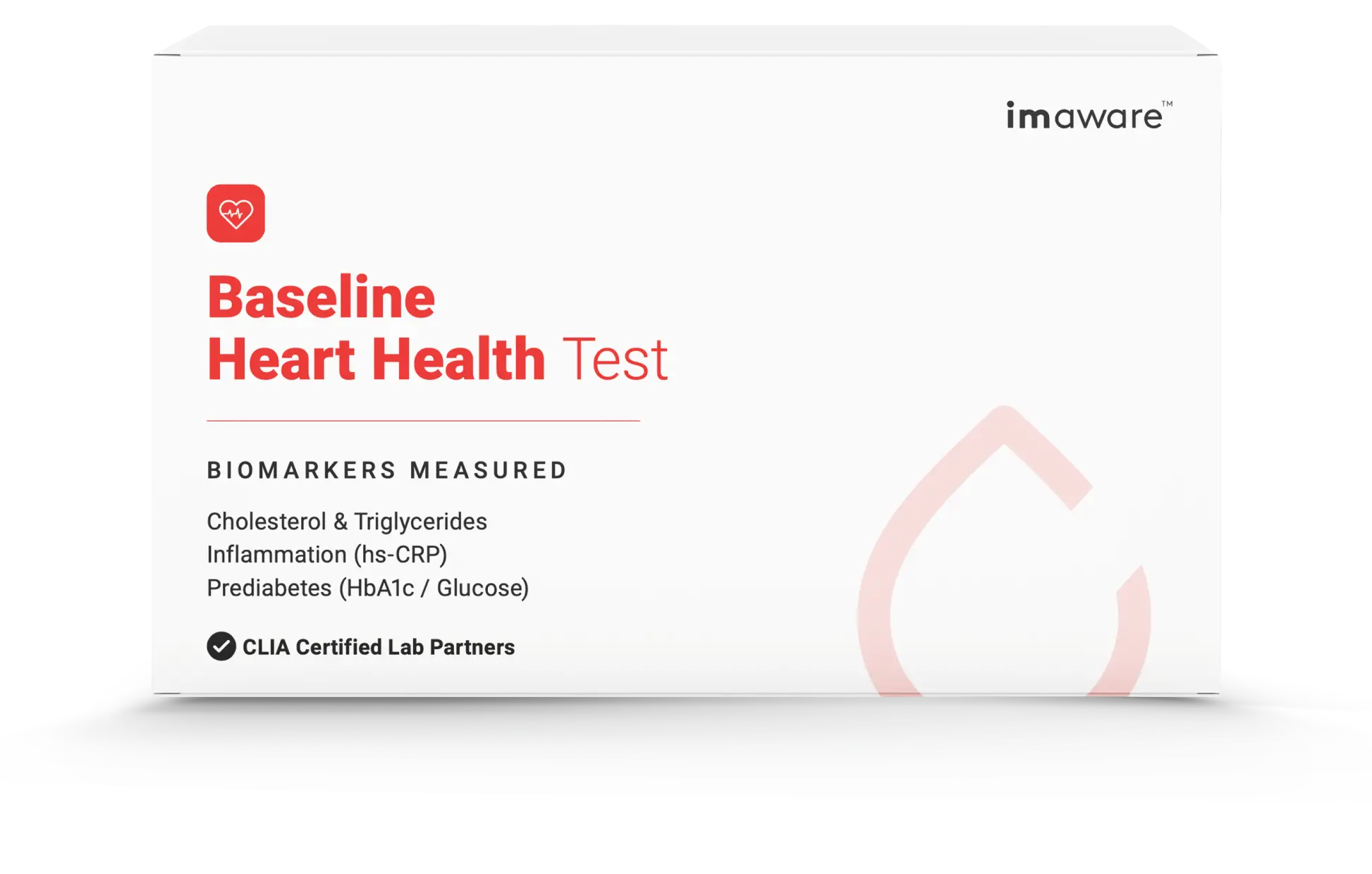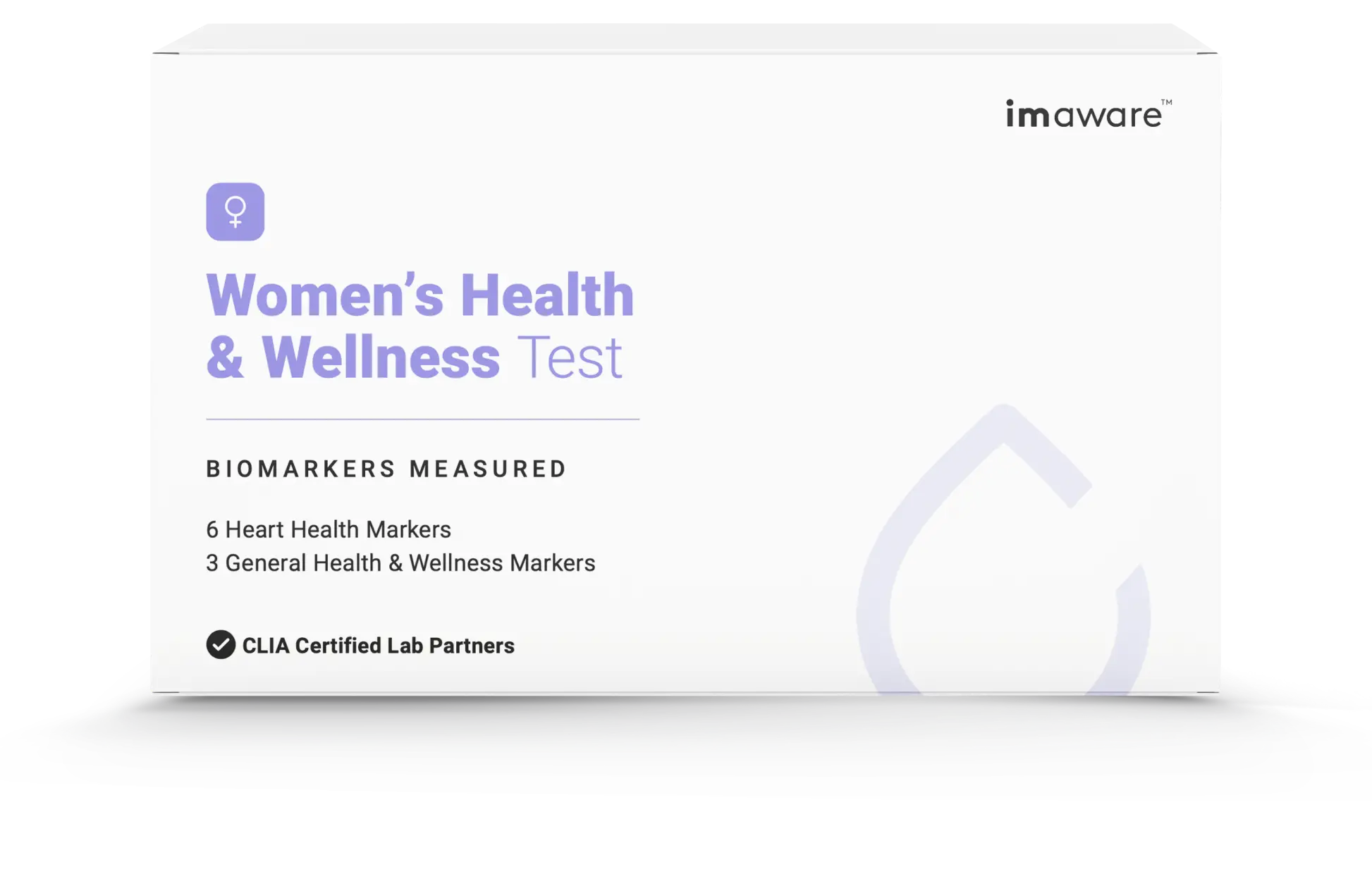What is HbA1c?
Hemoglobin A1c (HbA1c) is a biomarker that measures the amount of glucose in your blood that is attached to hemoglobin, the molecule in your red blood cells important for carrying oxygen throughout the body. HbA1c gives an average of your blood sugar over the past 2–3 months, providing a snapshot of your ability to maintain healthy blood sugar over time.
What is diabetes and what are its risks?
Diabetes causes blood glucose levels to stay elevated for long periods of time after a meal, eventually resulting in damage to the eyes, kidneys, nerves, circulatory system, and other organs. Hyperglycemia—the chronic state of having high blood sugar—is also known to adversely affect the immune system¹.
What does HbA1c test for?
Measuring HbA1c can detect prediabetes, help diagnose diabetes, and be used to monitor the effectiveness of diabetes treatments. The higher your percentage of HbA1c, the greater your blood sugar levels over the past 2–3 months and the greater your risk of having prediabetes or diabetes. Additionally, those with elevated HbA1c and a genetic variant of the haptoglobin protein called Hp2-2 have a significantly increased risk of heart disease². Learn more about haptoglobin.
When should I measure my HbA1c levels?
Other than elevated blood sugar, there are usually no symptoms accompanying prediabetes other than, possibly, areas of darkened skin, including on the neck, armpits, elbows, knees, or knuckles³. Prediabetes can progress to type 2 diabetes, at which point symptoms can include increased thirst, frequent urination, blurred vision³.
If you have prediabetes, it is recommended that you test HbA1c once a year⁴. For diabetics, the American Diabetes Association recommends testing your HbA1c at least twice a year to monitor the progress of your treatment⁵.
What is a normal HbA1c level?
The following levels are recognized by the imaware medical advisory board:
The higher your level of HbA1c, the greater your chance of developing type 2 diabetes.
How can I improve my HbA1c levels?
With this information, your healthcare professional can make informed decisions about your diet, lifestyle, and medications to help you control your blood sugar level better. This can include a balanced diet that reduces intake of carbs and sugar-rich foods, regular exercise, and getting enough sleep. Your healthcare professional might also prescribe medications to help regulate your blood glucose level, such as Metformin.

References
- Watts M. HbA1c and the immune system. 18 March 2020. Diabetes.co.uk. https://www.diabetes.co.uk/blog/2020/03/hba1c-and-the-immune-system.html
- Cahill LE, Levy AP, Chiuve SE, et al. Haptoglobin genotype is a consistent marker of coronary heart disease risk among individuals with elevated glycosylated hemoglobin. J Am Coll Cardiol 2013;61(7):728–737.
- Mayo Clinic. Prediabetes. Available from: https://www.mayoclinic.org/diseases-conditions/prediabetes/symptoms-causes/syc-20355278
- Mayo Clinic. A1C test. Available from: https://www.mayoclinic.org/tests-procedures/a1c-test/about/pac-20384643
- American Diabetes Association. Understanding A1C. 6 July 2021. https://www.diabetes.org/a1c




.webp)